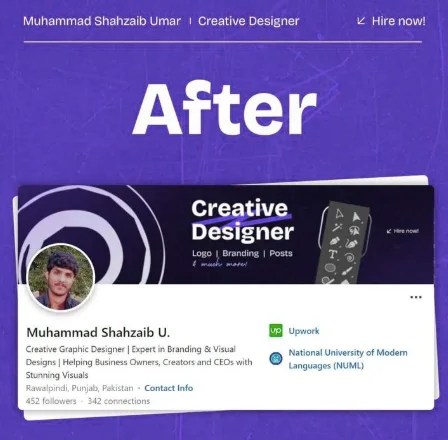In today’s rapidly evolving digital economy, the tech job market is more competitive than ever. With the influx of skilled developers, data analysts, AI specialists, and UX designers, landing your dream role requires more than just strong technical expertise. You need strategy, branding, and clarity.
In this article, we explore powerful, practical tips to stand out in a saturated tech job landscape in 2025—backed by insights from hiring trends, recruiters, and career coaches.
Table of Contents
- Why the Tech Job Market Is Crowded—But Still Full of Opportunity
- Build a Personal Brand That Gets Noticed
- Go Beyond Applying: Network Like a Pro
- Tailor Every Application With Laser Precision
- Upskill Intentionally (Not Just for the Sake of It)
- Showcase Soft Skills in a Technical Way
- Frequently Asked Questions (FAQ)
- Final Thoughts: Turn Competition Into Opportunity
Why the Tech Job Market Is Crowded—But Still Full of Opportunity
Despite layoffs and hiring freezes in recent years, the demand for tech professionals continues to grow. However, remote work, global talent access, and AI-driven candidate screening have increased competition.
Companies like Google (google.com), LinkedIn (linkedin.com), and GitHub (github.com) report that job applications per opening have more than doubled since 2023. So how do you cut through the noise?

Build a Personal Brand That Gets Noticed
Make LinkedIn Work for You
Your LinkedIn profile is more than a resume—it’s your digital billboard. Optimize it with:
- A clear headline like “Full Stack Developer | React, Node.js | Building Scalable SaaS”
- A branded cover image
- Regular posts that show thought leadership (e.g., insights on frameworks, projects, or trends)
Recruiters at Microsoft (microsoft.com) say they often find candidates through their posts, not just their applications.
Own a Professional Portfolio
Host your projects on a clean, responsive website. Add case studies that explain:
- Problem → Solution → Tech stack → Outcome
- Bonus: Include links to live demos or GitHub repos
Use your name as the domain if possible (e.g., janedoe.dev). Tools like Framer (framer.com) and Vercel make it easy.

Go Beyond Applying: Network Like a Pro
Attend Industry Events
Virtual or in-person conferences like VivaTech (vivatechnology.com) are goldmines for connection. Don’t just attend—engage. Ask questions, share insights, and follow up with contacts.
Reach Out Strategically
Instead of cold applying, try:
- Finding the hiring manager or team lead on LinkedIn
- Sending a tailored, value-driven message (e.g., “I noticed your team is scaling a React-based platform—I recently built something similar…”)
This puts you ahead of the applicant pool.
Tailor Every Application With Laser Precision
Generic resumes don’t work anymore.
Use the job description as your blueprint. Identify keywords and reflect them in:
- Your resume bullets (mirror the language)
- Your cover letter (show how your past experience solves their current problem)
- Your portfolio (feature similar projects)
AI-powered ATS systems reward relevance.

Upskill Intentionally (Not Just for the Sake of It)
The tech world is obsessed with learning—but not all skills are marketable.
Before enrolling in another bootcamp, ask:
- Is this skill in demand on job boards?
- Are top startups hiring for it?
- Does it complement my niche?
Sites like Coursera (coursera.org) and edX have job-aligned programs in AI, data privacy, and cloud computing.

Showcase Soft Skills in a Technical Way
Companies now want developers who can communicate, manage stakeholders, and think critically.
In interviews and portfolios, quantify your impact:
- “Improved load time by 40%, reducing bounce rate”
- “Led a team of 3 to ship an MVP in 2 weeks using agile sprints”
Numbers = confidence + credibility.
Frequently Asked Questions (FAQ)

Q: Is it still worth applying if I don’t meet all the requirements?
Yes. Many job descriptions are wishlists. Apply if you meet at least 60-70%—and use your cover letter to explain how you learn fast.
Q: How can I stand out as a junior developer?
Build real-world projects, contribute to open source, and create educational content (e.g., dev blogs or YouTube tutorials).
Q: Do I need to know AI to stay competitive?
Not necessarily. But understanding how AI intersects with your role—whether in dev tools, design, or analysis—gives you an edge.
Q: How important are referrals?
Extremely. Referred candidates are 4x more likely to be hired. Build relationships before you need them.
Q: Should I focus on remote roles or local companies?
Both. Remote offers flexibility, but local roles can be easier to break into, especially for early-career professionals.
Final Thoughts: Turn Competition Into Opportunity
Yes, the tech job market is crowded—but the best candidates aren’t always the most experienced. They’re the most visible, strategic, and adaptable.
Instead of chasing every opportunity, focus on crafting your unique value proposition. Build your brand, network with intention, and apply smart. The right role isn’t just out there—it’s waiting for someone like you.



